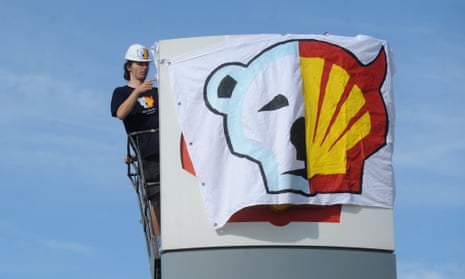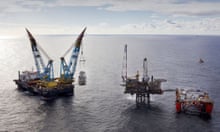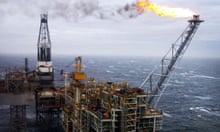The US government is expected this week to give the go-ahead to a controversial plan by Shell to restart drilling for oil in the Arctic.
The green light from Sally Jewell, the interior secretary, will spark protests from environmentalists who have campaigned against proposed exploration by the Anglo-Dutch group in the Chukchi and Beaufort seas off Alaska.
Jewell will make a formal statement backing the decision as soon as Wednesday, the earliest point at which her department can rubber-stamp an approval given last month given by the Bureau of Ocean Energy Management (BOEM).
The US Interior Department had been forced to replay the decision-making process after a US federal court ruled last year, in a case brought by environmental groups, that the government had made mistakes in assessing the environmental risks in the drilling programme.
However, the BOEM, an arm of Jewell’s department, has backed the drilling after going through the process again, despite revealing in its Environmental Impact Statement “there is a 75% chance of one or more large spills” occurring.
A leading academic, Prof Robert Bea, from the engineering faculty at the University of California in Berkeley, who made a special study of the Deepwater Horizon accident, has raised new concerns that the recent slump in oil prices could compromise safety across the industry as oil producers strive to cut costs. Bea, who has worked as a consultant to BP and Shell, told the Guardian:
“We should all be concerned about tradeoffs between production and protection ... With the significant reduction in the price for oil, there are equally significant pressures to reduce costs so that acceptable profitability can be maintained.”
Bea was brought in by Shell in 2004 to reviewhow the group had assessed the risks associated with the proposed drilling in the Chukchi Sea. “At the end of the week’s discussions, we agreed to disagree,” he said.
Meanwhile, Greenpeace argues that drilling in extreme Arctic conditions is always risky, especially during a period when industry is trying to reduce overheads due to a price of $50 per barrel oil.
“Piling cost-cutting pressures onto these contractors, who already have frankly atrocious safety records, doesn’t bode well for the Arctic, or the people and wildlife that call it home,” said Charlie Kronick, Greenpeace’s Arctic campaigner.
But Kronick said the move particularly made no sense in the context of countering global warming. “If we want to avoid catastrophic climate change we can’t even burn all the fossil fuels we already have; we definitely don’t need to trash what’s left of the melting Arctic looking for more.
“Obama needs to show leadership ahead of the Paris climate talks; allowing Arctic drilling in Alaska will seriously undermine that leadership and US credibility.”
Ed Davey, the British energy and climate change secretary, has asked the Bank of England to investigate threats to the financial system due to a carbon bubble caused by fossil fuels which cannot be burned because of global warming.
Shell declined to comment on the prospective Arctic go-ahead but has previously said a decision on whether to start drilling again this summer would depend on a number of factors including regulatory and legal certainty.
Ben van Beurden, the chief executive, told a recent financial results conference that he was keen to proceed: “We have retained very significant capability to be ready this year to go ahead. So will we go ahead? Yes, if we can.”
On the issue of safety a spokesman for the company said: “We’ve said clearly that our plans must meet our own high bar as well as the one set by US regulators. Both have taken unprecedented measures to ensure offshore operations and contingency plans in the US Arctic are second to none.”
Shell was forced to halt operations in Arctic the middle of 2012 after the failure of a key piece of safety equipment that would be used to tackle oil spills. The situation for the company became worse when the drilling rig it was using, the Kulluk, ran aground after it was being towed back to port.
A US coast guard report into the incident was heavily critical of the incident and Noble Drilling, which was working for Shell, was slapped with $12m worth of fines and community payments.
Shell hoped to restart in 2013 and then again in 2014 but failed after a series of legal challenges and other setbacks.
Despite its determination to press ahead in the Arctic, Shell aims to confront the risk that climate change may pose to its future, backing a resolution from activist shareholders to be debated at its May annual general meeting. This requires Shell to test whether its business model is compatible with the pledge by the world’s nations to limit global warming to a further rise of 2C.
The group also says it has always made clear that cost cutting must never compromise safety and remains committed to the highest safety initiatives through a Goal Zero initiative. “Goal Zero captures the belief that we can operate without fatalities or significant incidents despite the often difficult conditions in which we operate.”






Comments (…)
Sign in or create your Guardian account to join the discussion